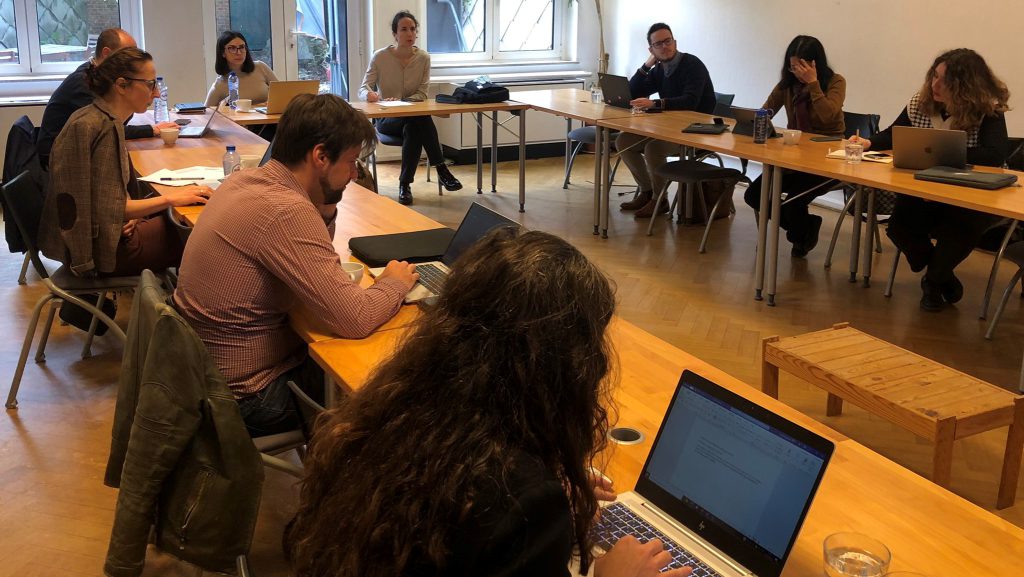On 29 April, researchers of the EUROSHIP project from University of Hamburg and University of Tallinn presented new findings on (1) gaps in the provision of affordable and high-quality long-term care across Europe and on (2) in-work poverty and quality of work among European youth.
The role of the European Stakeholder Committee (ESC) is to advise EUROSHIP researchers on current and upcoming EU policy initiatives. It consists of representatives from the European Youth Forum, the European Anti-Poverty Network, COFACE Families Europe, Age Platform Europe, the European Trade Union Confederation, the International Labour Organization and the European Commission’s Directorate-General for Employment, Social Affairs and Inclusion.

(1) The report on gaps in the provision of affordable and high-quality long-term care across Europe analyses the main trends in structures with regards to the provision of long-term care for older people and persons with disabilities since the 1990s. Despite improvements in the availability and financing of care within and outside the family, unmet care needs continue to be a major problem. Particularly affected are women, older persons (85+) and people from low-income households. Some key findings:
- The share of persons 65+ reporting care needs varies considerably among the studied countries: 23.2% in Norway, 36.8 % in Germany, 45.6% in the UK and Spain, 54.5% in Italy, 55.4% Hungary and 68.3% in Estonia.
- The percentage of people not receiving public support despite self-reported care needs is high in almost all countries: 16.4% in Norway, 49% in Germany, around 66% in the UK, Italy and Spain, and around 84% in Estonia and Hungary.
Read the full analysis and findings here (EUROSHIP Working Paper no. 14).
(2) The report on in-work poverty and quality of work among European youth focuses on labour market trajectories for all working youth in order to detect the most vulnerable trajectories and to describe their characteristics. The report focuses on all EUROSHIP countries (Estonia, Norway, UK, Spain, Italy and Hungary). Some key findings:
- In all observed countries the lowest levels of risk of in-work poverty are among the full-time employed youth. The prevalence of full-time employment among young people varies considerably from one country to another (e.g. around 50% in Spain and 75% in Norway). In some countries full time employment among young people is particularly male dominated.
- Unemployment seems not to be the (main) cause of in-work-poverty. However, it seems to elevate the poverty risk once unemployment experience is present.
The full paper will be published shortly under the same link as above.
The ESC participants provided their insights during a lively discussion after the presentations.

